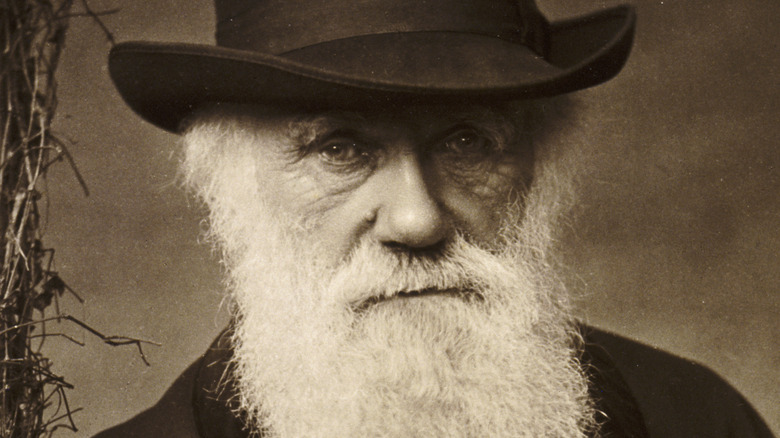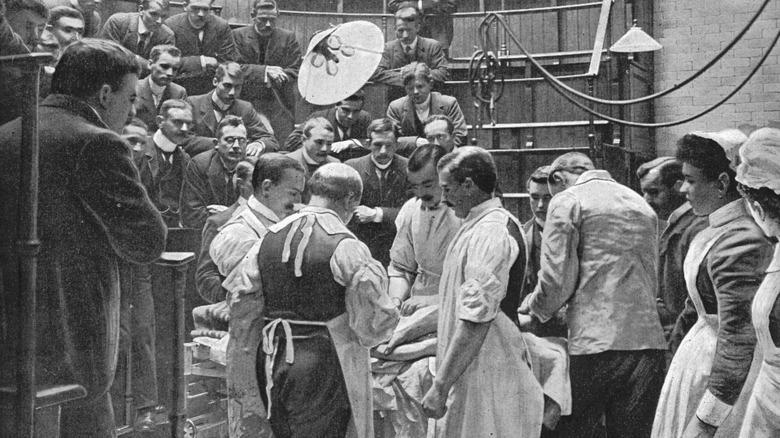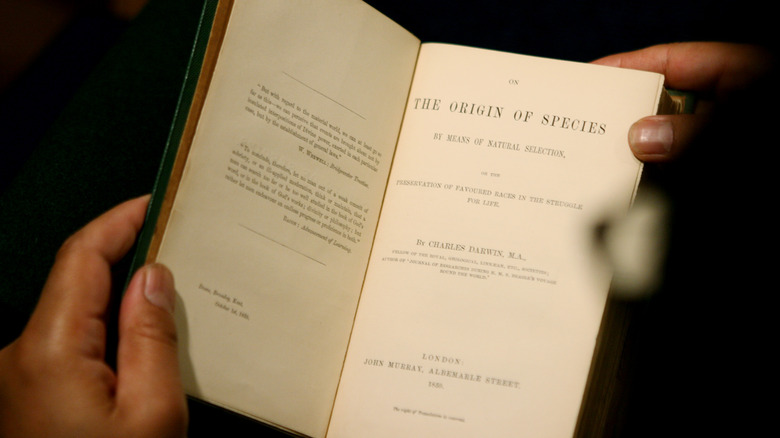The Real Reason Charles Darwin Didn't Become A Medical Doctor
One wouldn't talk about evolution without mentioning Charles Darwin. After all, he's not called the Father of Evolution for nothing. Charles Robert Darwin was born in Shrewsbury, England, in 1809. He was from a wealthy family and was the fifth child out of six children.
As a child, Charles was always interested in nature and had a passion for beetles. He was encouraged by one of his teachers to start a beetle collection, and he ended up with a large collection that included rare species. In school, he admitted that he wasn't an exceptional student, saying, "I believe I was considered by all my masters and by my father as a very ordinary boy, rather below the common intelligence," according to New England Complex Systems Institute.
Charles Darwin came from a family of scientists. His grandfather, Dr. Erasmus Darwin, was a well-known botanist, physician, philosopher, and naturalist who had his own theory of evolution (via University of California at Berkeley Museum of Paleontology). Charles' father, Robert Darwin, was a medical doctor who wanted his sons to follow in his footsteps. In the summer of 1825, Charles worked for his father as an apprentice in his medical practice and at 16 years old, Charles, together with his brother, entered the University of Edinburgh to study in the medical field. That wouldn't last, though, as Charles dropped out.
What caused Charles to drop out of medical school?
During Charles' studies in medicine, he was required to observe a surgical procedure. In the 19th century, surgeries could be gruesome and torturous. Operations were done with neither sterilization nor anesthetics. As medical historian Lindsey Fitzharris stated in an interview with The Washington Post, "Patients had no choice but to be awake the entire time. There are medical accounts that just describe the sheer screaming and struggles of patients against the knife."
Charles was traumatized at the sight of blood during the procedure. He soon dropped out of school without completing his medical course, much to his father's disappointment. Aside from being squeamish at the sight of blood, Darwin also found the lectures mundane. In his autobiography, Charles described one of his instructors: "Dr. Munro made his lectures on human anatomy as dull as he was himself, and the subject disgusted me" (via Hektoen International).
Charles' fear of blood followed him throughout his life. According to The New Atlantis, even seeing a small scratch on his children would make him queasy, and seeing leeches sucking blood on wounds made him feel sick.
Work as a naturalist
Another factor driving his decision might have had to do with grave robbing. Medical schools were forced to rely on grave robbers for the cadavers used in classrooms, and as Hektoen International suggests, Charles was disgusted by the practice.
For whatever combination of reasons, Charles dropped out of medical school and enrolled at Christ's College in Cambridge to study theology. All this time, however, natural history remained his passion, and in 1831, he set off on a voyage aboard the HMS Beagle to work as a naturalist. He took note of his discoveries, studying fossils, plants, and animals. His never-ending studies led to discoveries in the scientific world, as reported by National Geographic.
Charles became known for his views on natural selection and evolution. In 1859, his discoveries were published in "On the Origin of Species by Means of Natural Selection," wherein he laid out the theories that he formulated during his voyage on the Beagle. It took decades for Darwin to publish his work, as he was aware that it would cause controversy, as reported by History. Upon publication, his work sold out, and to this day, it remains one of the most important academic books to be written.


